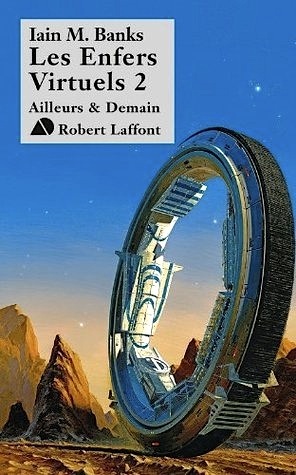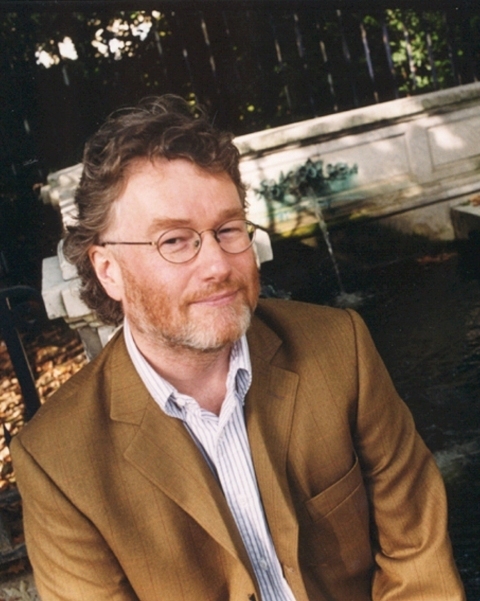
Part of Series
Une esclave en quête de vengeance, un voyage à travers la galaxie, la description d'inimaginables supplices, une guerre dans le monde virtuel... Banks noue tous les fils de son intrigue et conclut en fanfare ce septième opus du cycle de la Culture. Le cycle de la Culture ( L'Usage des armes, 1992 ; L'Homme des jeux, 1992 ; Excession, 1998 ; Le Sens du vent, 2002 ; Trames, 2009), l'un des plus importants de l'histoire de la science-fiction, met en scène une société galactique tolérante, cynique, hédoniste, anarchiste, pleine de bonnes intentions et parfois machiavélique. Mettant en scène des humains, des Intelligences Artificielles de tout calibre et des Extraterrestres plus étranges les uns que les autres, le Cycle aborde pratiquement tous les thèmes de la science-fiction. Dans Les Enfers virtuels, Banks a imaginé l'usage effrayant que pourraient faire les civilisations galactiques des univers virtuels informatiques : puisqu'il est possible d'y copier et d'y projeter les personnalités de défunts, on crée, pour les ressortissants supposés criminels ou seulement coupables d'écarts à la loi, des Enfers virtuels aussi épouvantables que possible et d'où personne ne peut s'échapper. Les supplices atroces (Banks ne manque pas ici un et même plusieurs clins d'œil à Dante, notamment dans sa description du démon en chef) des damnés dureront aussi longtemps que les univers virtuels puisqu'ils " ressuscitent " chaque fois qu'ils succombent aux sévices infligés... Les civilisations qui ont créé les Enfers virtuels estiment ces châtiments nécessaires à leur conservation et à leurs principes moraux : les méchants doivent être punis. D'autres, plus progressistes (et certains opposants à l'intérieur des précitées), estiment au contraire ces abominations insupportables et devant être abolies. C'est évidemment le point de vue de la Culture. Dans son combat, la Culture va trouver une cible en la personne du richissime et barbare entrepreneur Veppers (dont la famille a fait fortune dans les jeux virtuels partagés) après avoir découvert qu'il abritait dans ses ordinateurs les fameux Enfers virtuels. Pour l'atteindre, les I.A. et des humains de Circonstances spéciales (bras armé de la Culture) vont utiliser Lededje, l'ex-esclave de Veppers déterminée à se venger de son bourreau... les deux fils de l'intrigue (le sort de l'esclave Lededje et la bataille opposant les civilisations galactiques autour des enfers virtuels) finissent ainsi par se rejoindre dans un final spectaculaire !
Author

Iain M. Banks is a pseudonym of Iain Banks which he used to publish his Science Fiction. Banks' father was an officer in the Admiralty and his mother was once a professional ice skater. Iain Banks was educated at the University of Stirling where he studied English Literature, Philosophy and Psychology. He moved to London and lived in the south of England until 1988 when he returned to Scotland, living in Edinburgh and then Fife. Banks met his wife Annie in London, before the release of his first book. They married in Hawaii in 1992. However, he announced in early 2007 that, after 25 years together, they had separated. He lived most recently in North Queensferry, a town on the north side of the Firth of Forth near the Forth Bridge and the Forth Road Bridge. As with his friend Ken MacLeod (another Scottish writer of technical and social science fiction) a strong awareness of left-wing history shows in his writings. The argument that an economy of abundance renders anarchy and adhocracy viable (or even inevitable) attracts many as an interesting potential experiment, were it ever to become testable. He was a signatory to the Declaration of Calton Hill, which calls for Scottish independence. In late 2004, Banks was a prominent member of a group of British politicians and media figures who campaigned to have Prime Minister Tony Blair impeached following the 2003 invasion of Iraq. In protest he cut up his passport and posted it to 10 Downing Street. In an interview in Socialist Review he claimed he did this after he "abandoned the idea of crashing my Land Rover through the gates of Fife dockyard, after spotting the guys armed with machine guns." He related his concerns about the invasion of Iraq in his book Raw Spirit, and the principal protagonist (Alban McGill) in the novel The Steep Approach to Garbadale confronts another character with arguments in a similar vein. Interviewed on Mark Lawson's BBC Four series, first broadcast in the UK on 14 November 2006, Banks explained why his novels are published under two different names. His parents wished to name him Iain Menzies Banks but his father made a mistake when registering the birth and he was officially registered as Iain Banks. Despite this he continued to use his unofficial middle name and it was as Iain M. Banks that he submitted The Wasp Factory for publication. However, his editor asked if he would mind dropping the 'M' as it appeared "too fussy". The editor was also concerned about possible confusion with Rosie M. Banks, a minor character in some of P.G. Wodehouse's Jeeves novels who is a romantic novelist. After his first three mainstream novels his publishers agreed to publish his first SF novel, Consider Phlebas. To distinguish between the mainstream and SF novels, Banks suggested the return of the 'M', although at one stage he considered John B. Macallan as his SF pseudonym, the name deriving from his favourite whiskies: Johnnie Walker Black Label and The Macallan single malt. His latest book was a science fiction (SF) novel in the Culture series, called The Hydrogen Sonata, published in 2012. Author Iain M. Banks revealed in April 2013 that he had late-stage cancer. He died the following June. The Scottish writer posted a message on his official website saying his next novel The Quarry, due to be published later this year*, would be his last. *The Quarry was published in June 2013.


